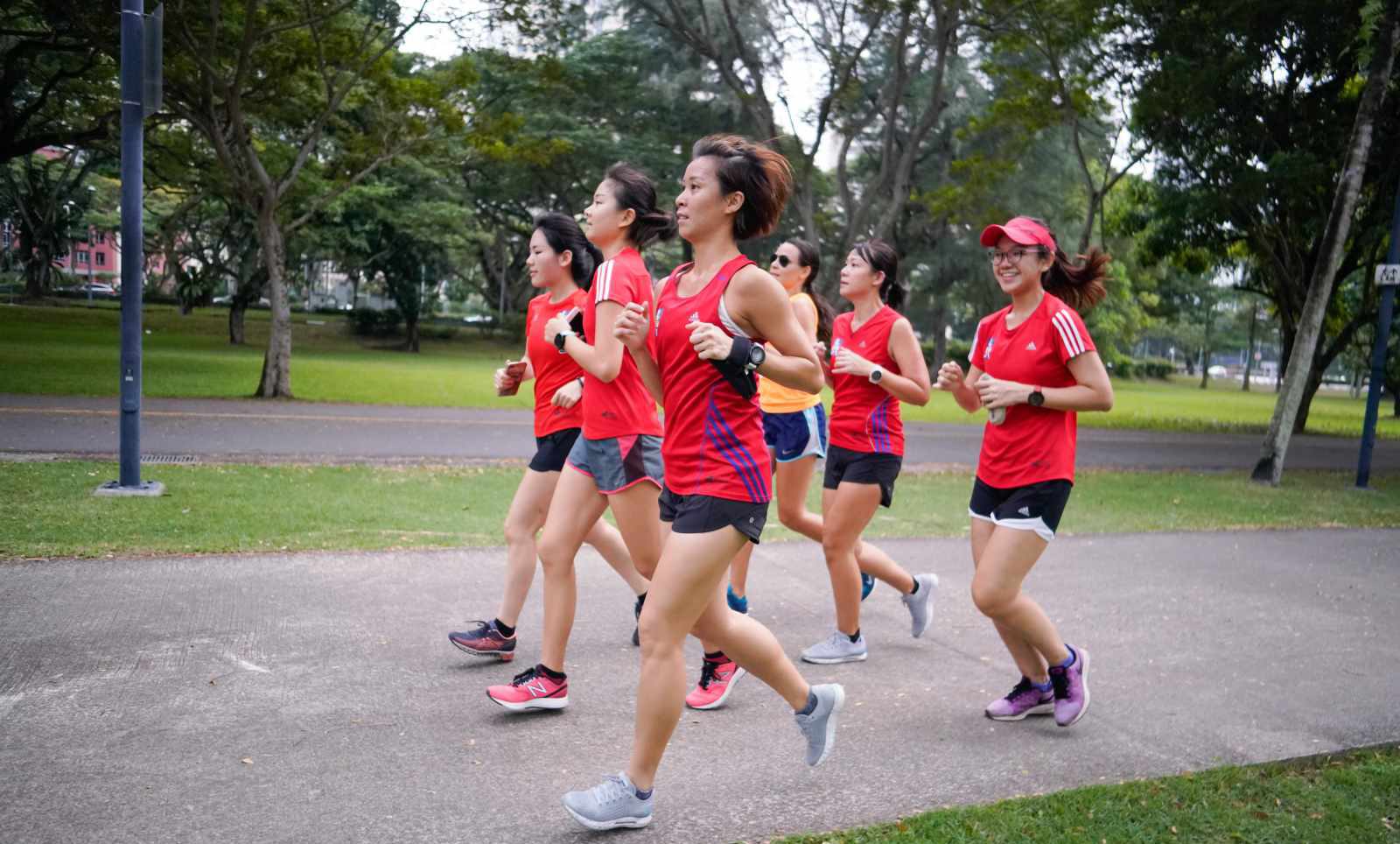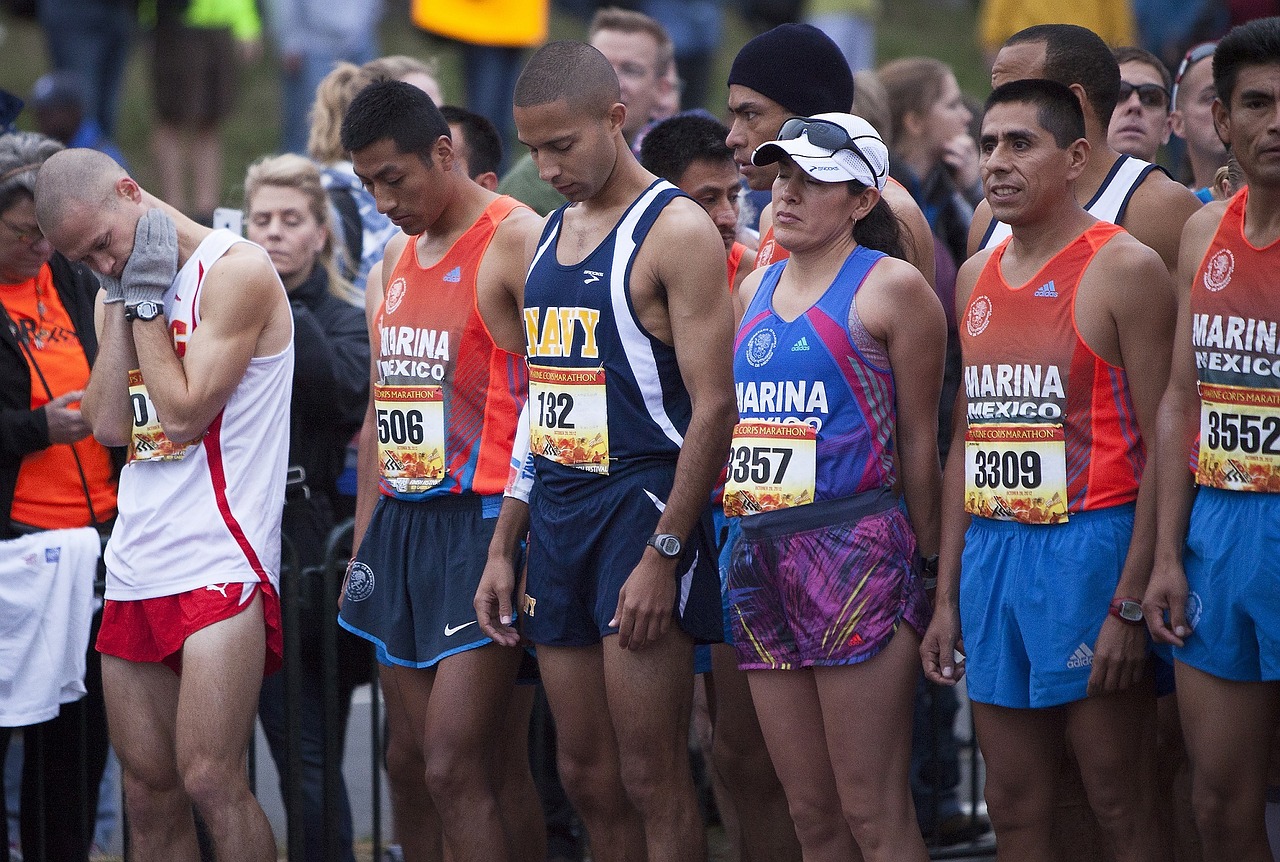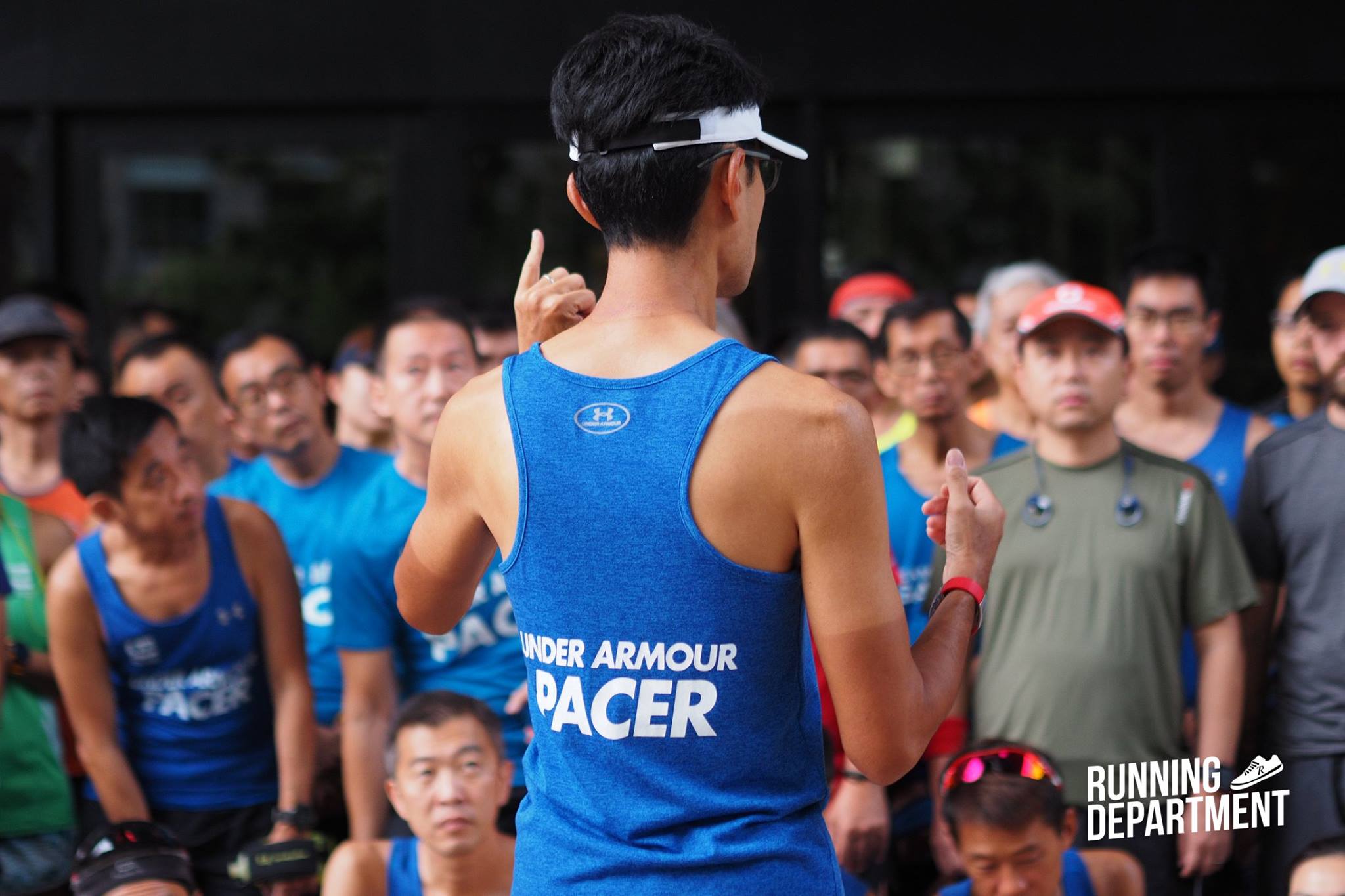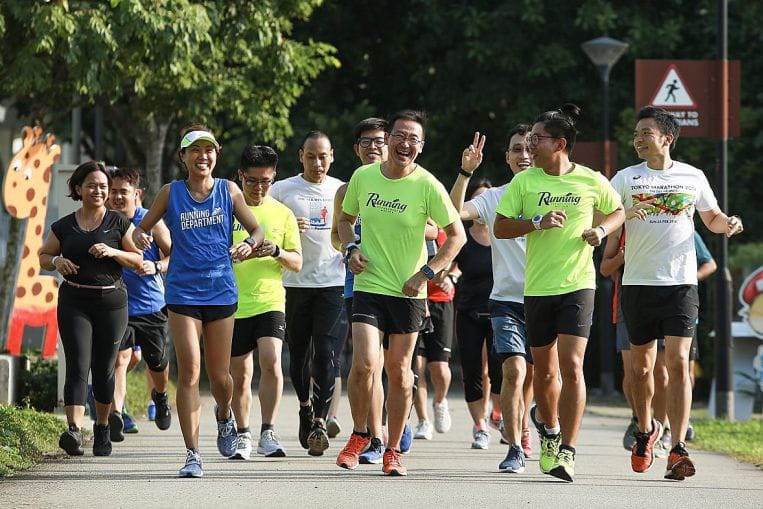If you’ve ever come to one of Running Department’s Saturday training sessions, you may be familiar with a sign like this:
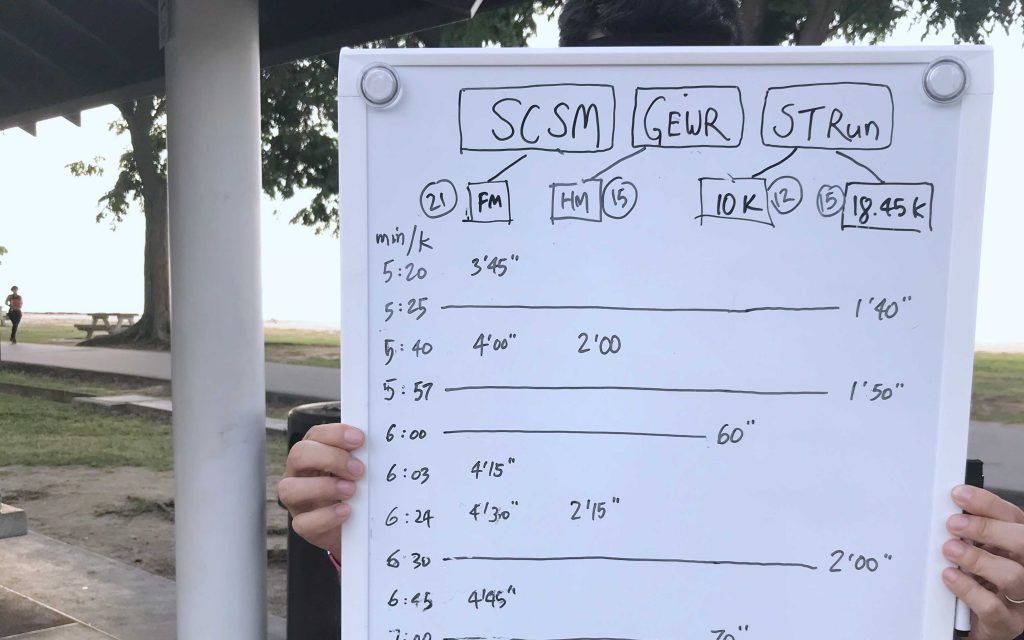
During the training leading up to races such as Standard Chartered Singapore Marathon, Running Department offers a wide range of pace groups between 5:20/km to 7:49/km to train with every Saturday.
These pace groups run at the target pace at which Running Department’s pacers will be running at on the race day to achieve specific finishing times (eg 7:49/km pace is required to finish a full marathon in 5hr 30mins)
But as a public runner, which pace group should you run with during these training sessions?
Fundamental Pillars of Long Distance Training
There are three generally accepted main components of long distance run training. Broadly, these can be described as:
- Speedwork / Hills – Short and fast segments interspersed with rest/ breaks.
- Tempo Runs – Runs of between 20-40mins, at an effort level or pace that one would race a 1hr run at.
- Long Runs – Long continuous run approx 1.5x the length of your longest weekday run, and not longer than 1/3 of your weekly mileage.
Specificity from Long Runs
For the large majority of us, leg speed is not the limiting factor in our marathon completion time.
Take for example, a 5 hour marathon. Broken down, that is 2min 48s per 400m lap around a track. Most of us can easily run 400m faster than that, but why then do we struggle when running a marathon at a much slower pace?
One of the reasons is that the marathon is very demanding aerobically. Studies have shown that the marathon is 99% aerobic, and just 1% anaerobic (ie your sprinting ability contributes only 1%)
In our daily lives, most of us never have the need to run long distances of 20, 30+ km, (whereas we may occasionally have to sprint for the bus) and that is why when we race a marathon we often find ourselves sorely unprepared and untrained for it.
Building Aerobic Capacity
How then do we develop the aerobic capacity for a marathon?
The single greatest predictor of marathon performance is volume of training. The more mileage a runner manages to consistently accumulate, the better he will be at fulfilling his marathon ability. We see this principle in the training of professional long distance runners, where even 5k racers train up to 160km per week to build up their aerobic capacity.
Now, such high mileage volume takes years to build up to. The bulk of us have jobs and families to attend to and mostly cannot afford the run-eat-sleep-run lifestyle of a professional runner. But regardless of 160km/week, or 60km/week, mere mortals like us can adopt some lessons from these elites:
- If you are running high mileage, the majority of your mileage (say 80%) should be run at an easy pace (ie a pace you can hold a conversation at). Strava data has shown that runners who have qualified for the Boston Marathon (BQ) run just 15% of their runs faster than their marathon pace, whereas runners who have not BQ run a whopping 57% of their runs faster than their marathon pace.
- The definition of “high” mileage is individual to yourself and your history. For someone who is very new to exercise, 20km/week could very well be high
- Progression is important. Muscles and bones need months and years to adapt to increased workloads, and too much too soon will result in injury
- Rest and recovery are crucial. We don’t get fitter during exercise, we get fitter and stronger during the rest period in between that allows our body to repair itself.
Conclusion
As a helpful rule of thumb, we recommend that folks joining the pacers from Running Department on the Saturday long runs do a pace that is approximately 40-60s/km SLOWER than their target marathon pace.
If we look at our local top marathoners Mok Ying Ren & Soh Rui Yong, they have very similar PBs (2hr26/2hr24) which is approx. 3:25min/km. 4 weeks before Mok’s PB in the Seoul 2017 marathon, and 3 weeks before Soh’s 2017 SEA Games marathon win, both of them did a very similar final long run. Both of them did that long run at approx. 4:15/km pace, which is almost 50s/km slower than what they could race a marathon at.
Training for a marathon is very specific to the individual, and one short article cannot cover all the possible circumstances. But often, we see runners joining us on Saturdays in a pace group that is possibly too fast for effective training, resulting in them being unable to complete the distance. If this sounds familiar to you, do adopt the training principles of the elites mentioned above, and may you run happy and strong!

